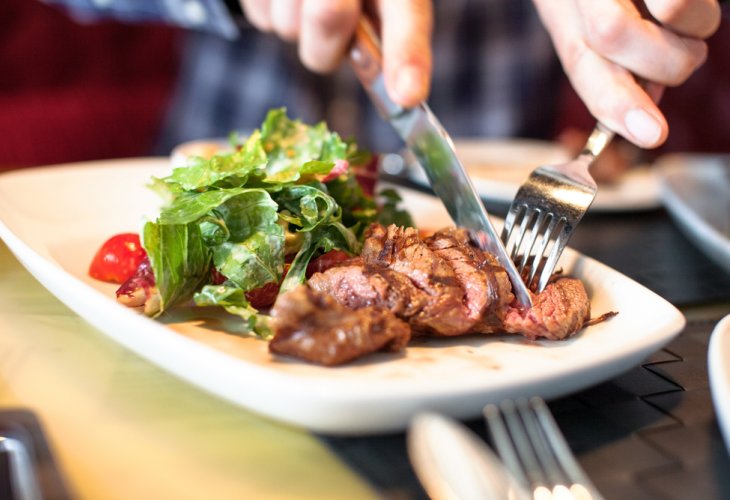Jewish Law
The Spiritual Power of Kashrut: How Kosher Food Purifies the Soul and Sharpens the Mind
How eating kosher refines the intellect, protects spiritual sensitivity, and influences generations

One who is careful with kashrut merits a holy soul. The more a person refines the purity of the food they eat, the more their mind and soul are sanctified, rising in levels of holiness and spiritual clarity.
Non-kosher food causes spiritual damage — unless one repents. Beyond the prohibition itself, eating non-kosher food inflicts irreversible harm upon the soul and intellect. It dulls spiritual sensitivity and weakens both the desire and the awe for Torah and mitzvot.
Sin dulls the human heart. The Torah states: “Do not defile yourselves… and you shall be defiled by them” (Vayikra 11:43). The Sages noticed the word “venitmetem” (“and you shall be defiled”) is written without an aleph, implying “venitamtem” — “and you shall be dulled.”
The Talmud (Yoma 39a) explains: “Sin dulls the heart of man.”Forbidden foods defile the soul. The Sefer HaChinuch (mitzvah 152) explains that impurity weakens the intellect and clouds spiritual perception: “Impurity confuses the rational soul and separates it from divine understanding, until it becomes clouded and insensitive — as it says, ‘Do not defile yourselves by them… for you shall become defiled through them,’ meaning, the fountains of intellect are clogged by impurity.”
Elisha ben Avuya’s downfall began in the womb.The Jerusalem Talmud (Chagigah 2:15) recounts:
When Elisha ben Avuya’s mother was pregnant, she passed by a pagan temple, smelled the aroma of the offering, and tasted from it. Though permissible for a pregnant woman in distress, that taste of impurity seeped into the unborn child’s soul. Even though Elisha later became a great Torah scholar — one of the four who entered the mystical “Pardes”, that subtle spiritual poison never left him, and he ultimately strayed, known thereafter as “Acher” (“the other”).
 (Photo: shutterstock)
(Photo: shutterstock)Rav Chaim Kanievsky to a professor: ‘That’s why you cannot understand the Talmud.’ Rabbi Yitzchak Zilberstein recounted: A renowned mathematics professor once came to Rav Chaim Kanievsky, lamenting that despite years of study, he could not grasp a single page of Gemara. Suddenly, he remembered an incident from childhood — when, at age nine, he once tasted non-kosher meat out of irresistible temptation. “From that moment,” he wept, “my mind was blocked; I could no longer comprehend Torah.” Rav Chaim advised him to fast for one day to spiritually purge the impurity from his system, saying that only through such purification could clarity return.
Kosher food is essential for Torah success and raising righteous children. The Chida (in Birkei Yosef) writes: “One who wishes to succeed in Torah, wisdom, fear of Heaven, and the education of his children must be exceedingly strict about the kashrut of his food, and not rely lightly on every certification — for his soul and the souls of his offspring depend on it.”
Be mindful of what enters your mouth. Rabbi Yaakov Tzemach wrote in his notes: “A person should eat with awareness and not like an animal. Before praying that Torah should enter his body, he should pray that delicacies do not. The God-fearing person will tremble upon contemplating this.”
Keeping kosher is not merely a dietary discipline — it is a spiritual safeguard. It protects the soul, refines the intellect, and shapes moral sensitivity. As the Sages teach: “A person’s mind and heart are what he eats.” Through pure food, we nourish not only the body but also the light of the soul within.

